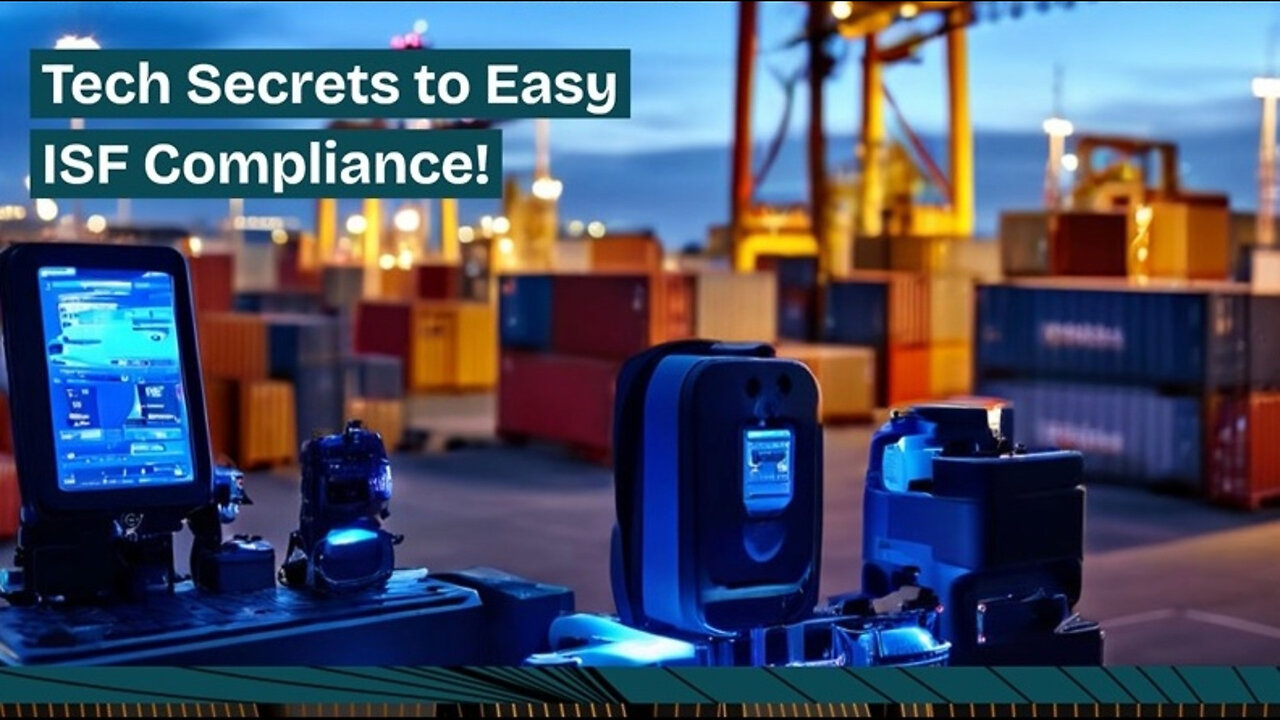Premium Only Content

Mastering ISF Compliance: How Technology is Revolutionizing Customs Brokerage
License To Import // 323-578-6432 // file@licensetoimport.com // www.licensetoimport.com
Welcome back to our channel! Today, we will be diving into the role of technology in streamlining Importer Security Filing (ISF) compliance processes for customs brokerage. We will explore the importance of ISF compliance, the challenges faced in traditional ISF compliance methods, and how technology has revolutionized the process.
ISF compliance is vital for importers to provide essential information about their goods to US Customs and Border Protection (CBP) before they are shipped. It enhances supply chain visibility, strengthens national security, improves risk assessment, and facilitates trade.
In the past, complying with ISF regulations was often tedious and time-consuming. Manual data entry, managing multiple spreadsheets, and coordination with various stakeholders posed challenges for customs brokers. These traditional methods were prone to human error, delays, and inefficiencies.
However, technology integration into customs brokerage processes has paved the way for a more streamlined ISF compliance process. Custom brokerage software solutions, specifically designed for ISF compliance, have emerged as a game-changer.
Automation and data integration play a crucial role in streamlining ISF processes with technology. Advanced software allows for seamless import of data from multiple sources, reducing manual data entry. This integration ensures accurate and timely submission of ISF filings.
Technology-enabled systems also provide real-time compliance checks to ensure that submitted ISF information meets regulatory requirements. Automated alerts notify customs brokers of any discrepancies or missing data, allowing them to rectify issues promptly.
Furthermore, technology has enhanced communication and collaboration in the customs brokerage industry. Customs brokers can easily communicate with their clients, carriers, and other parties involved in the import process. This reduces delays and enhances overall efficiency.
Advanced analytics and reporting capabilities provided by technology offer comprehensive insights into ISF compliance. By analyzing historical data and patterns, customs brokers can identify areas for improvement, optimize workflows, and make informed business decisions.
The benefits of technology-driven ISF compliance are undeniable. It saves time, reduces errors, improves compliance rates, enhances supply chain visibility, and strengthens security measures. Ultimately, it enables customs brokers to provide more efficient services to their clients.
In conclusion, technology has transformed how customs brokers manage ISF compliance. The integration of automation, data integration, compliance checks, communication tools, and advanced analytics has streamlined the process. Customs brokers can ensure accurate and timely ISF filings, improve compliance rates, and provide more efficient services to their clients. Thank you for watching, and stay tuned for more informative content on our channel!
#usimportbond #isfcustomsbroker #uscustomsclearing #isfentry
Video Disclaimer Here: This video is solely for education and is not endorsed by any US government agency.
00:26 - Importance of ISF Compliance
01:24 - Streamlining ISF Compliance with Technology
03:16 - Benefits of Technology-Driven ISF Compliance
-
 17:07
17:07
Fit'n Fire
1 day ago $3.28 earnedThe IMBEL FAL 7.62x51mm Battle Rifle
12.9K1 -
 54:12
54:12
Uncommon Sense In Current Times
15 hours ago $5.35 earned"Neither Batman nor the Good Samaritan: A Christian View Of Self-Defense in the Daniel Penny Case"
7.8K3 -
 59:57
59:57
The Tom Renz Show
16 hours ago"Health and Health freedom - next steps"
5.86K3 -
 39:40
39:40
PMG
13 hours ago $4.49 earned"Paulo Figueiredo, Mehek Cooke, Ashley Hayek, Mark Mitchell- The Breanna Morello Show"
23.4K4 -
 3:37:41
3:37:41
Fresh and Fit
6 hours agoGirls React To Lily Philips Sleeping With 100 Guys
116K50 -
 27:00
27:00
Stephen Gardner
8 hours ago🔥McConnell ATTACKS Trump | HUGE Update on MILITARY DRONES mission!!
104K146 -
 8:10:03
8:10:03
Dr Disrespect
17 hours ago🔴LIVE - DR DISRESPECT - WARZONE - HUNTING SEASON
255K77 -
 1:32:28
1:32:28
Fresh and Fit
10 hours agoHow To Wholesale and Fix & Flip Real Estate!
68.1K10 -
 1:30:55
1:30:55
Flyover Conservatives
1 day agoDrones, Darkness, and Divine Intervention: Unpacking Prophecy and Reality - Dr. Troy Spurrill | FOC Show
41.6K2 -
 59:32
59:32
The StoneZONE with Roger Stone
8 hours agoHonoring Great American Patriots for Helping to Save our Country | The StoneZONE w/ Roger Stone
93K8